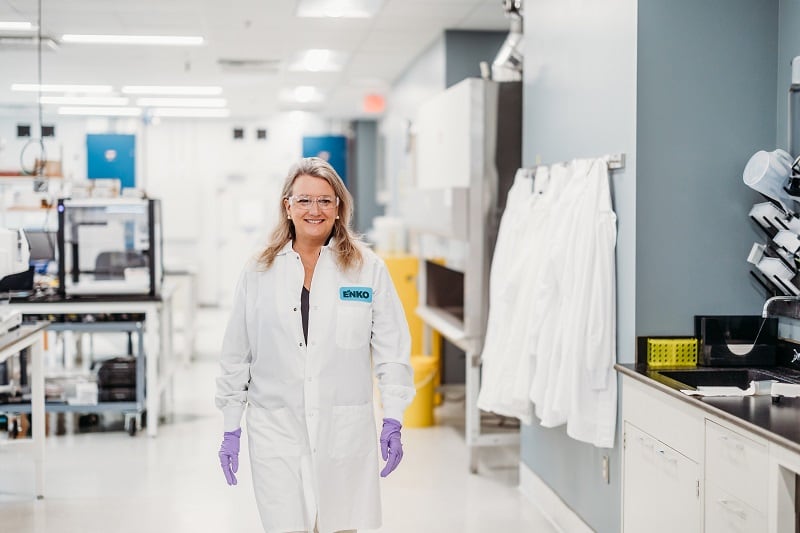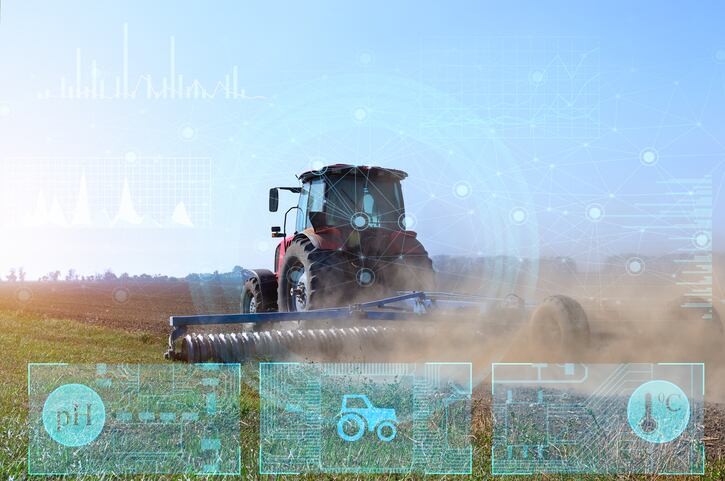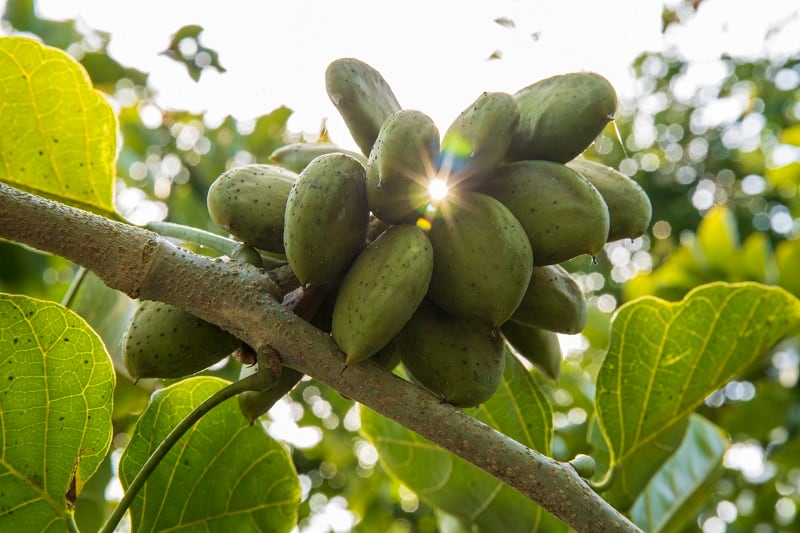Last month witnessed International Women’s Day, Women’s Empowerment Month and Women in Ag Day. Female-fronted agtech businesses remain few and far between though. Exclusively women-founded agtech firms made up around 3% of last year’s global agtech VC deal activity, according to PitchBook’s US VC female founders dashboard. Exclusively women-founded agtech companies received only 2.73% of the US$7.1 billion raised in the 952 agtech deals in 2023.
While female leadership has taken root in other sectors, in agriculture as a whole it is lagging, complains Jacqueline Heard, CEO of Enko Chem. Women still only make up 36% of active farmers in the US, for example.
A lack of women in agtech means investors are missing out on attractive growth opportunities, according to some commentators. Heard echoes this sentiment. “Diversity matters because it makes any business stronger, especially global businesses where the unique needs of populations can be helped through multi-faceted experience, understanding and cultural competency,” she said.
Why we need women in agtech
“Diversity contributes to business growth and better decision making through strategic thinking and innovation. Gender, age, religion, and ethnicity are all important contributors to diversity.”
More diversity, she reckons, can help the agtech sector solve those problems it has tasked itself with solving – namely the race to support a more sustainable and productive food ecosystem.
“Diversity makes businesses stronger, and strong businesses, in turn, drive more intense change,” she explained. “Solving the global sustainability challenge for our food system is not a male or female problem; it is a human problem and an environmental problem. The more diverse perspective, ideas and investment we can rally to ensure a safe and sustainable food system that meets the need of our global population in the face of climate pressures, the better.”
But we shouldn’t ignore the fact that more women are moving deeper into careers in ag, and she predicts we will see more rise to lead new ideas in the sector. The agtech sector will therefore come to resemble most modern industries, according to Heard.
“The makeup of founders in any given industry has traditionally mimicked the genders of those that predominantly work in that industry,” she said. “Like financial services, technology, legal, or construction industries, as examples, agriculture has a long history of male leadership. That is now changing.
‘If progress, innovation and sustainability matter to you, then agtech could be a perfect career path’
“Decades of tradition do not simply disappear over a few short years, but I expect there to be more female founded agtech companies in the next decade. As we increase the focus on female-founded success stories and more women are drawn to careers in ag, we will see the gender divide in agtech founder leadership dissolve and a new era of diversity in agtech innovation and leadership emerge.
“I expect the same trajectory took place in other industries over the years. Take the financial industry where you now see many female leaders. Forerunners in any given space carve an easier path by serving as both mentors and examples for those who follow.”
Enko completed its US$80 million Series C round in 2023: one of the biggest global agtech VC deals with at least one female founder. The raise, which followed its initial close of US$70 million in July 2022, took the company’s overall capital raised to date to US$150 million.
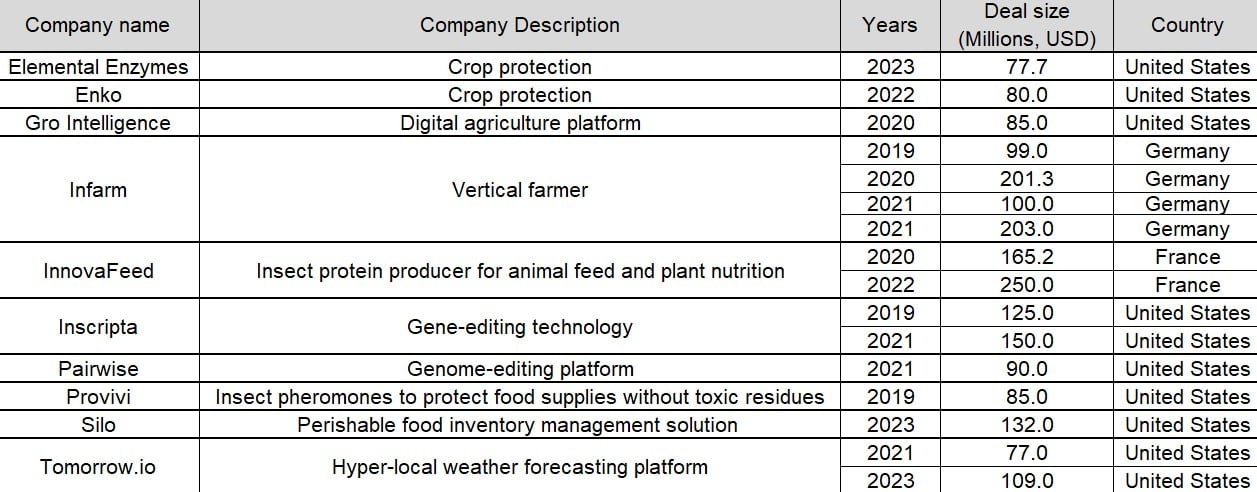
It has since made tie-ups with Bayer and Syngenta to apply pharmaceutical discovery methods to finding crop protection chemicals.
“I work with incredibly talented women at Enko and throughout our ecosystem of partners and investors in the ag community,” Heard said. “From the fields and labs, to management positions in small to multinational companies, women are making their mark throughout the industry. It is only a matter of time until we see more women leading successful agtech companies.”
Will women-led business suffer more in the funding downturn?
Most innovators and startups are, however, currently facing tight capital market conditions. What can women in ag do to earn the funding and industry support they need to succeed? A winning investor pitch has to be strong, airtight and impactful, Heard advised.
“Know your industry inside and out. Investors won’t easily dismiss a business idea that hits key buckets like fulfilling a massive need, makes a significant social and environmental impact, and, admittedly often most importantly, has the potential to generate strong profits.
“Early on, work with as many investors, industry partners, regulators and members of the scientific community as you can. Make sure you think through every element of your pitch and can fully communicate the need and potential.
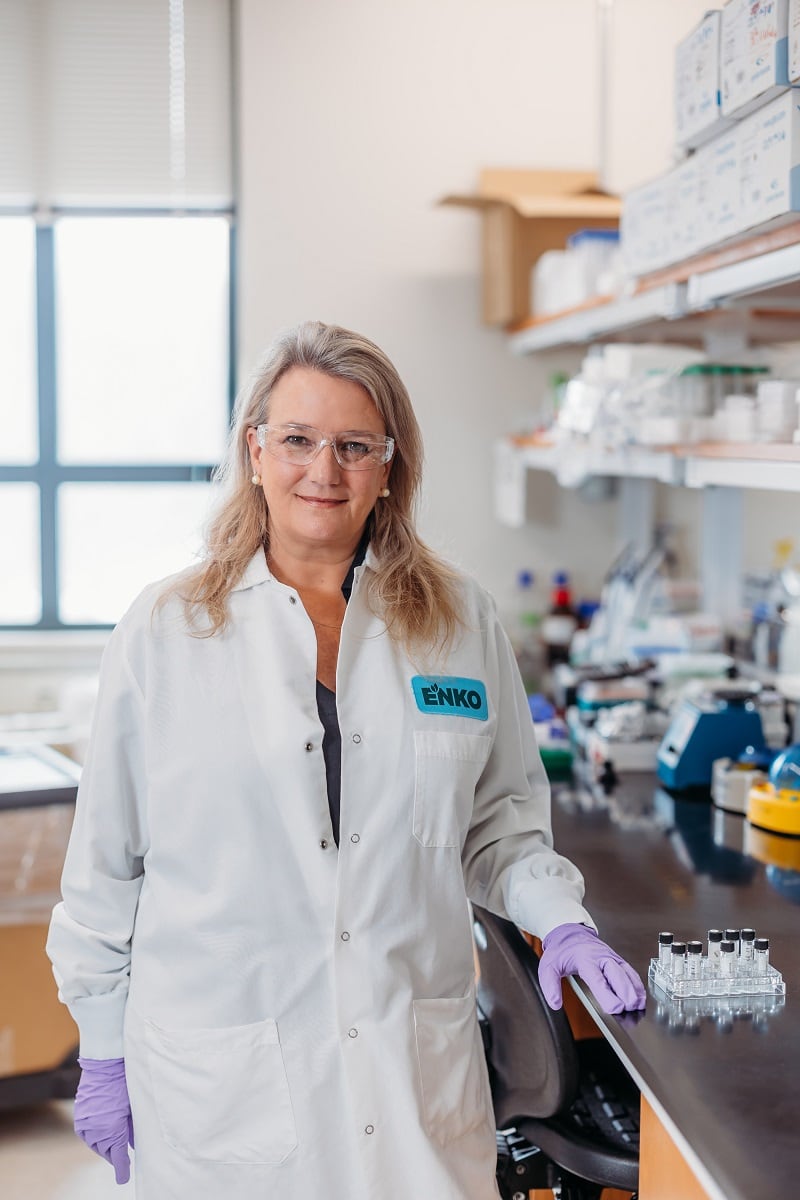
“Earning investor support is still the beginning. Addressing systemic change in the food and ag industry will take decades so do not expect a quick win or easy way out. Be ready to dedicate years of your time, hard work and passion into your endeavor.”
An agricultural industry veteran, Heard has devoted over 25 years to identifying and developing technology that improves the resilience and sustainability of food production.
She spent more than a decade in leadership roles at Monsanto. She has also served as a partner at Flagship Ventures, a VC fund that invests in early-stage startups.
Not only is she passionate about moving innovation from the lab to the field to ensure food security and sustainability, she told us, but she also participates actively in female-driven communities to help empower other women in ag and tech at large.
‘All leaders must be entrepreuners’
What are her top lessons learned from 25+ years as a female leader in a male-dominated industry? “To become a successful business leader in any field, you must be entrepreneurial and willing to learn and adjust the sails every point in your journey,” she responded. “I think being an entrepreneur is a personality trait, and startup leaders must be entrepreneurs at their very core.
“Learning the skills you will need for any given industry is critical. For example, I use my scientific knowledge, technology acumen and even venture as essential tools in my entrepreneurial toolset. If progress, innovation and sustainability matter to you, then agtech could be a perfect career path.”
“A common theme across all of the different roles I have taken on over the years is that I felt strongly that they represented opportunities for long-lasting impact in the ag and food ecosystem. If you are passionate about what you doing, you will drive better results.
“I strongly believe that startups are the best environment out there for developing the next generation of leaders. I hope the lessons I have learned serve as a guide for any woman eager to jump into a career in agtech or ready to take the leap to startup leadership.”


